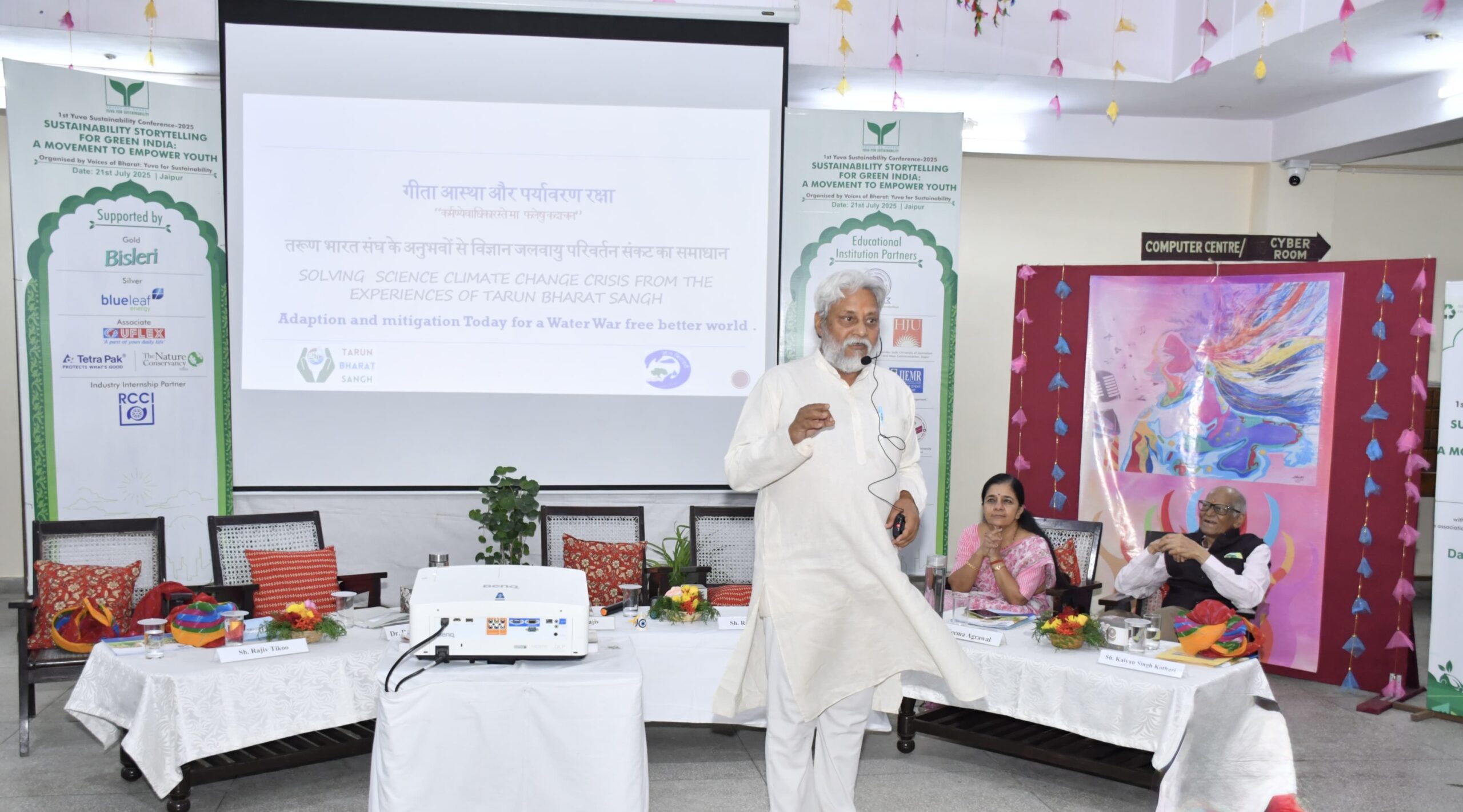While the Indian industry has done remarkably well in evolving a balance between commercial production and ensuring sustainability, the innovations, creativity and digital fluency among the youngsters are key factors to build the youth-industry synergy for the green growth. These views emerged at the First Youth Sustainability Conference 2025 organised here today.
The pioneering conference was held as part of a campaign for “Sustainability Storytelling for Green India: A Movement to Empower Youth” taken up under the aegis of Jaipur-based Lok Samvad Sansthan (LSS) and New Delhi-based Sustainability Karma. The day-long event was organised at Kanoria P.G. Mahila Mahavidyalaya here by “Voices of Bharat: Yuva for Sustainability”.
Experts from some leading industry and business groups, who interacted with young students of the college at its central library hall, felt that some key sectors driving India’s green economy were capable of offering solutions for financial viability, creation of employment opportunities and driving innovations in the day-to-day functioning of industrial units.
Speaking at the technical session devoted to building synergy between the youth and the industry, Mr. Pratyush Thakur, India Country Head, Blueleaf Energy, said the modern technology had made it possible for the industries to make profits and conserve environment. “As a leading renewable energy platform, Blueleaf Energy has brought solar energy to Rajasthan as a viable option by producing 1,000 MW power,” Mr. Thakur said.
Mr. K. Ganesh, Director, Sustainability & Corporate Affairs, Bisleri International, said the industries need to tap resources wisely during their production. He praised the concept of corporate social responsibility (CSR), mandated by the government, which was useful for serving the local communities.
Mr. Ganesh referred to Bisleri’s partnership with Kanoria Mahila Mahavidyalaya and other institutions for collecting the plastic waste for its safe disposal and recycling, while underlining the need for the industries to create a platform for knowledge sharing. “Collaborations between industries and institutions will go a long way in harnessing the potential of youths for a meaningful contribution to the society,” he said.
Ms. Neeru Dhawan, Head of Global Communication, UFlex, said her company, as India’s largest multinational flexible packaging and solutions entity, was playing an important role in recycling of plastic material. “Environmental conservation and safe disposal of the used material need to be embedded in our daily practice,” she emphasised.
Ms. Priyanka Sharma, Head of Operations – Nand Ghar, Vedanta, also highlighted Vedanta group’s contributions to environment conservation.
Presiding over the thought-provoking and well-attended session, Mr. K.L. Jain, president, Rajasthan Chamber of Commerce and Industry (RCCI), said the industries must not merely be engines of growth, but they should become champions of green innovation. “The energy of youth and the experience and resources of industry should be brought together to create a green, inclusive and resilient economy,” he said.
Mr. Jain, who has been active in the related fields of industries and stock exchange for several decades, said the sectors such as renewable energy, electric vehicles and battery storage, green infrastructure and buildings, sustainable agriculture and circular economy would be at the forefront of India’s transition into a green economy in the next ten years.
“In order to bridge the gap between the academia and the industry, we must co-create curriculum, encourage internships, apprenticeships and on-field exposure, support research and development collaborations, develop centres of excellence and incentivize startups and innovation labs,” Mr. Jain said.
The experts described the youth as not just the leaders of tomorrow, but as the “solution providers of today, while calling upon them to move forward with a shared vision of Green India with a commitment to the cause of climate protection. The green economy can be evolved with collaborations, innovations and upskilling.
Earlier, Water conservationist and Magsaysay Award winner Rajendra Singh, and Prod. Sudhi Rajiv, Vice-Chancellor, Haridev Joshi University of Journalism and Mass Communication, explained the crucial aspects of sustainability and environment to the students at the inaugural session of the conference.
Mr. Rajiv Tikoo, convenor of “Voices of Bharat: Yuva for Sustainability” and Consulting Editor of Sustainability Karma, said the initiative aims to train youth as storytellers who can influence public attitudes and inspire climate action. Mr. Kalyan Singh Kothari, Co-Convenor and Secretary of Lok Samvad Sansthan, added that sensitizing millions of young people to sustainability was vital for India’s green future.

